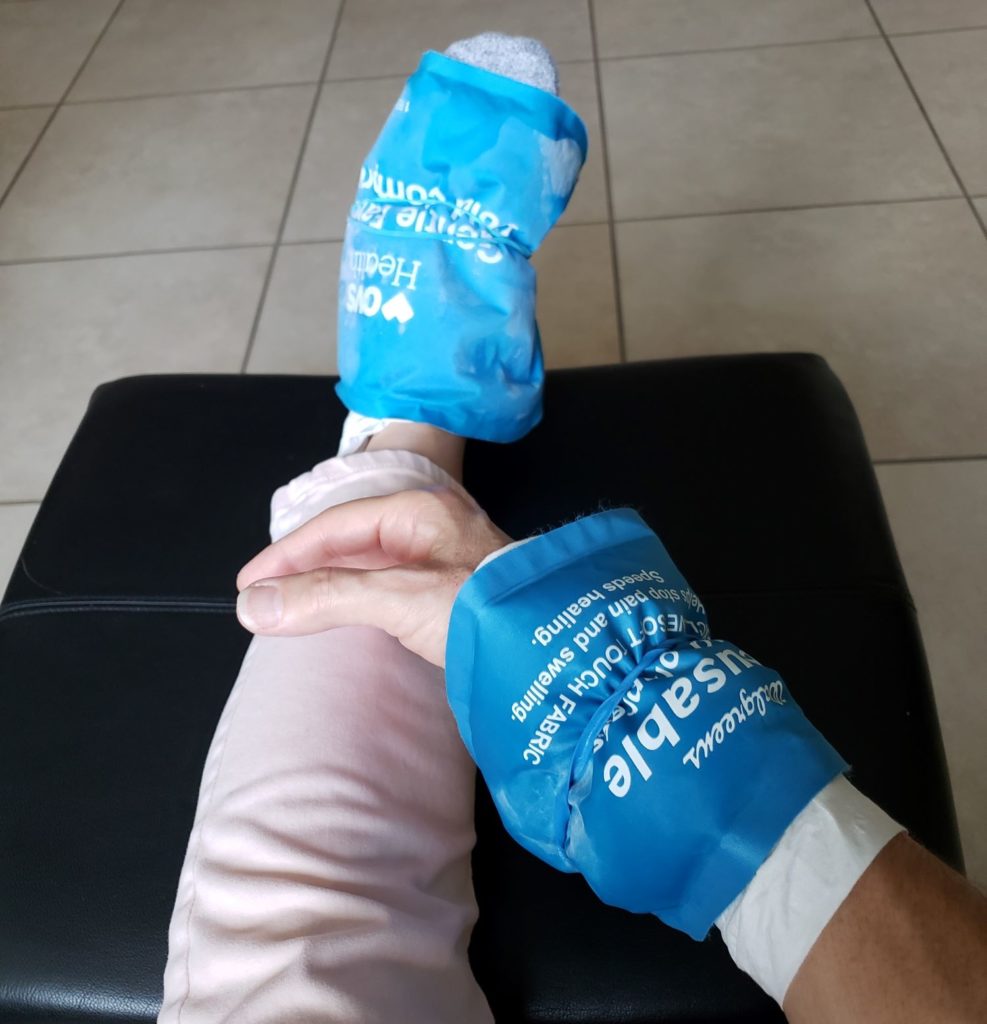Recently, there’s been heightened interest in ageism in healthcare.
“Your mom is in her eighties, what do you expect?”
“I’m prescribing something to help you relax and reduce your anxiety.”
“It’s arthritis. It comes with growing older.”
“There’s nothing wrong with you. You’re worrying too much.”
Labeling What Afflicts Patients
Labeling is a convenient way for doctors to limit exploring other options; in my case, joint or immobilizing finger pain. I had to put a stop to these labels. I explained why with a smile and then forbade the use of the A-word in my doctor’s office. I had to remind them a few times. Now, when they catch themselves about to say, “arthritis,” they laugh. I want them to continue exploring options for my optimal care.
Active Elder
I am a 62-year-old active female whose mental age hovers around 30. It used to be 16, until about a year ago when I realized how long it takes me to heal from injuries. I hike in the mountains. I run up and down stairs. I’ll play a game of basketball or go on a bike ride.

Ageist Doctor
After injuring my foot, wrist, and further damaging my knee and shoulder (I crashed onto the pavement after losing my balance reaching high for the basketball), the orthopedic surgeon shattered my plans to run one more marathon. “Your running days are over.” I accepted his remark, because he, at age 69, was like me—still active and training for the marathon.
Earlier, the words of the forty-something orthopedic surgeon who assessed my shoulder injury, didn’t land as nicely. “____ treatment doesn’t work well for people, your age.”
I looked into his eyes and said, “Sure, you’re likely in your forties… how about advice for an active 60-something?”
He repeated what he had just said and added, “I’m going by the research.”
No thanks, Doc!
Ageism in Healthcare in the Media
Doctors are so busy; they barely have time to review your records before seeing you. You only have about 10 minutes. My advice in a recent article published in Healthline, ‘You’re Getting Older’: How Seniors Can Counter Ageism From Medical Professionals, is to take a proactive role. I choose the areas I want to focus on. This frees up my doctor to do what he does best—discuss options, offer advice, and refer me to any specialists or for lab tests.
Overcoming Doctor Resistance
A few weeks ago, I visited a reputable ophthalmologist who, for several years, had been monitoring my left eye for a potential issue. This year, I also had his office perform my annual eye exam. When they handed me a copy of the Rx I requested, was surprised to see how dramatically my vision had improved. I reminded them that I also wanted a separate pair of reading glasses adjusted for a distance of about 10 inches, instead of the typical reading Rx set at 16 to 18 inches. When I asked about their adjusted figures, he and his assistant assured me that I would not understand the complicated calculations. It was the end of the day and they are likely right. Yet, I needed to know, after waiting two months to see this doctor, that I was getting what I needed. I asked again, firmly with a smile. The assistant stayed and begrudgingly indulged me.
Slowing the Process
To receive quality medical care, we must advocate for ourselves and our loved ones. Sometimes, doctors rush through a diagnosis as did the psychiatrist who hastily prescribed an antidepressant for my father. When I mentioned that the particular Rx, he chose was part of a study with poor outcomes for people with dementia, he asked, “Are you a doctor?” “No,” I replied, “but I do want to do what’s right by my father.” Fortunately, he reconsidered his treatment plan and prescribed something more appropriate. I thanked him and he thanked me in return.
Granted, we’re all busy and it’s harder to concentrate. Slowing the process by even one minute, with a question or request for clarity, will ensure our concern is addressed. We must first communicate our health issues clearly. Then, we’ll prevent unnecessary follow-ups to correct wrongs due to hasty assessments.
Better Health Outcomes
Studies have shown that freer communication between physicians and patients, results in greater satisfaction and adherence to treatment plans.
Be proactive. Request a copy of your medical records. See New Transparency in Doctor-Caregiver Communication among July’s Article Excerpts. Review them, closely. I even write notes in the margins. When there’s time, I ask questions or request them to update any incorrect information. Sometimes, they’re so rushed, I think they make-up stuff!
Speaking up and being proactive will reduce instances of ageism.
It took me months to heal after doing all the physical therapy exercises. For a while, I even used a walker! I’m ready to go. At least, that’s what my 30-year-old mind tells this sixty-something body.









Great article, Brenda!! Especially pertinent for me as I’ll be 83 in a couple of weeks! Lynn Gardner
WHAT? Where did the years go, Lynn… from 2002 in Armenia. WOW!
HAPPY EARLY BIRTHDAY!